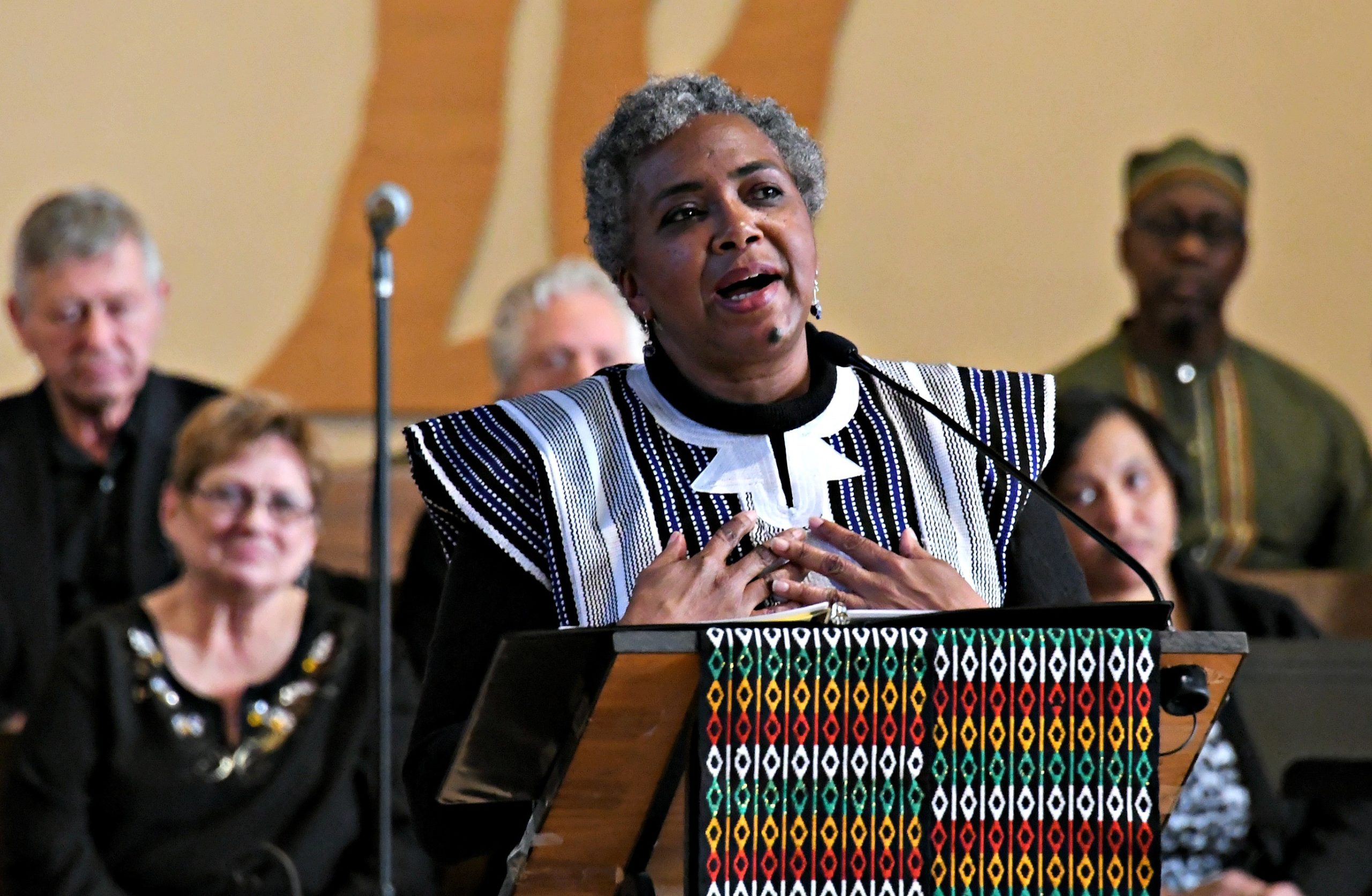Note: This is the second of three parts on the Canonization of Fr. Augustus Tolton.
When Fr. Augustus was ordained in Rome, the original intention was for him to do mission work in Africa. However, a decision was made by the Propaganda Fide (Propagation of Faith) at the last minute to send him back to his hometown.
Bishop Perry described, and I wholeheartedly agree, that when Giovanni Cardinal Simeoni sent Fr. Tolton back to the United States in 1886 after his ordination, he sent him back to be nailed to a cross. The Cardinal insisted that America needed a black priest, and a country that claimed to be an enlightened nation deserved that honor. Instead, he totally miscalculated the extent of the environment he was sending Fr. Tolton into and sent him to embark upon a journey of woe and strife. Nailed to the cross! What imagery, what a powerful description of Fr. Tolton’s experience. In reading a book on his life, “From Slave to Priest,” by Caroline Hemesath, when he learned the news that he was being sent back to America, he is described as going to pray and asking God, “Can I drink the cup?” That is, the cup of suffering. He asked himself and God, “Can I go back to a place that had me enslaved, where I was not wanted, where no seminary would accept me for religious instruction?” He prayed. It is such a palpable metaphor of the inquiry that Jesus asked of His Father when he knew of his impending death and crucifixion. And, as an obedient Son, he did His Father’s will. As Fr. Tolton prayed and asked the question of returning to the United States, he, too, was obedient and said, “Yes, I can drink the cup.” This symbolism is so compelling. Little did Cardinal Simeoni know that he was placing him in the lion’s den, to be a martyr amongst his own fellow priests and practicing Catholics.
I want to acknowledge that there were some clergy and religious sisters that were supportive of Fr. Tolton. They helped with his formative education, provided him counsel, helped with his religious instruction and provided him with financial assistance. They felt his pain and were present for him. Despite these well-intentioned gestures, the systemic racism and injustices were, and are, so deeply woven into the fabric of mainstream society, that it requires more than good will to break free.
His mother knew. She was an instrumental force in his life. She braved the dangerous waters of the Mississippi River with three young children, including an infant, to get from slave country in Missouri to free country in Illinois. She was a source of inspiration throughout his life and provided him with some of the soundest advice that guided him throughout the many obstacles he faced. She reminded him that he must never forget the goodness of the Lord and to ask the Lord to take care of him always. She reminded him that the goodness of the Lord endures forever.
Fr. Tolton did indeed carry a heavy burden. He exhibited all the signs of sainthood. He served the Church, his parishioners, the people and the Lord with a zeal and faithfulness that never betrayed the pain and hurt he carried in his soul and spirit. His love for the Church and God is undeniable. It reminds me of the words of Pope Francis in the encyclical, “Fratelli Tutti”: a love that transcends barriers. While the Holy Father was speaking of how we should be with one another, it is an example of how Fr. Tolton displayed his love for the Church, transcending all of the barriers placed in his path.
Oh, how I wish that I could say that: that my love for the Church transcends barriers. That I am willing to rise above a history where people that look like me did not matter. If I’m being honest, I don’t think I can assert that proposition. At best, I can describe it as an internal battle to fight against what is wrong and do my best to not judge, and treat my neighbor any different than I would want to be treated. But, admittedly, that is a very tall order. So, I pray for guidance, patience and fortitude to stay strong in those instances where the disparities remain. It is often easier said than done. We have a litany of stories, experiences and laws that affirm that black lives have not mattered. And we are witnessing them play out today in shootings by law enforcement, voter suppression, hate crimes and systemic disparities that exist in every institution. Yes, we have a long way to go.
In his address, Bishop Perry stated that society seems comfortable with people of color being marginalized. I assert that it will require one breaking out of their comfort zone to begin to break down these barriers. In actuality, it will require something radical. Bishop Perry asks, “How do we invoke empathy, a deeper understanding of community without chastising whiteness?” It is certainly very complicated. But, then, as human beings, we always make things more complicated than they need to be. The answers are usually right there in front of us; we just have things like fear, pride, ambition and greed that get in the way. Things that are so much a part of the human condition.

Celia Jackson
